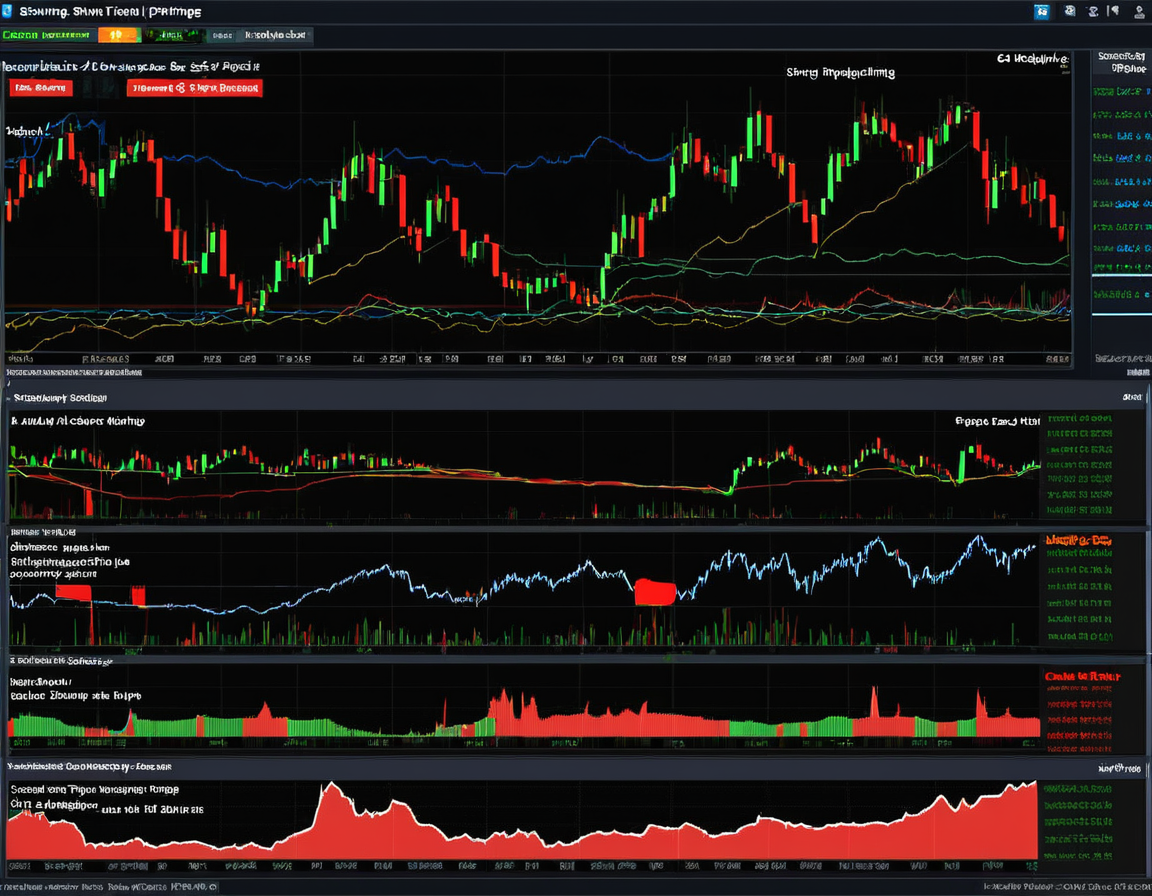How Inflation Affects Forex Trading and the Indian Stock Market
Inflation plays a crucial role in shaping both the Indian stock market and the forex market. It affects everything from the purchasing power of a country’s currency to corporate profits and consumer spending. For Indian traders, understanding how inflation impacts these markets is essential for making informed investment decisions. In this blog, we’ll explore how inflation influences forex trading and the stock market, and provide key strategies to navigate inflationary periods in 2024.
H2: What is Inflation and How Does it Affect Markets?
Inflation refers to the general rise in the price level of goods and services over time, leading to a decrease in the purchasing power of money. In India, inflation is typically measured by the Consumer Price Index (CPI). High inflation can erode the value of the Indian Rupee (INR), increase costs for businesses, and impact consumer spending, all of which influence both the stock market and forex trading.
For a detailed explanation of inflation, check out Investopedia’s inflation guide.
H2: Impact of Inflation on Forex Trading
H3: 1. Inflation and Currency Value
In the forex market, inflation has a direct impact on the value of a country’s currency. High inflation typically leads to a weaker currency because the purchasing power of money decreases. This means foreign investors may demand less of the local currency, which can cause the currency to depreciate. For Indian traders, high inflation could weaken the INR against major currencies like the USD, EUR, or GBP.
Example:
If India experiences higher inflation compared to the US, the USD/INR pair may rise, reflecting the depreciation of the Rupee relative to the Dollar.
To learn more about how inflation affects currency value, visit BabyPips’ guide on inflation in forex.
H3: 2. Central Bank Response to Inflation
Central banks, such as the Reserve Bank of India (RBI), often raise interest rates to combat inflation. Higher interest rates attract foreign capital, which can strengthen the local currency. Conversely, if inflation rises too quickly and the central bank does not act, the currency may continue to weaken.
Example:
If the RBI raises interest rates to curb inflation, the Indian Rupee might strengthen, leading to a decrease in the USD/INR exchange rate.
For insights on how central banks manage inflation, read DailyFX’s article on central bank policies.
H3: 3. Impact on INR-Based Currency Pairs
Inflation in India affects not only the USD/INR pair but also other INR-based currency pairs like EUR/INR and GBP/INR. As inflation erodes the value of the INR, Indian traders should expect increased volatility in these pairs, particularly during periods of economic uncertainty.
To stay updated on inflation data, check TradingEconomics’ inflation index.
H2: Impact of Inflation on the Indian Stock Market
H3: 1. Rising Costs for Businesses
Inflation increases the cost of raw materials, wages, and other inputs for businesses. This can hurt corporate profits, particularly in sectors like manufacturing and consumer goods, where companies struggle to pass on higher costs to consumers. As a result, inflation can lead to lower stock prices, particularly for growth-oriented companies that are more sensitive to rising costs.
Example:
In an inflationary environment, companies like Tata Motors or Maruti Suzuki may see profit margins shrink due to rising input costs, leading to a potential decline in stock prices.
For insights on how inflation affects corporate profits, check out Forbes’ guide to inflation and businesses.
H3: 2. Interest Rate Sensitivity of Stocks
In response to inflation, the RBI may raise interest rates, making borrowing more expensive for businesses. Sectors such as real estate and infrastructure are particularly sensitive to rising interest rates, as they rely heavily on borrowing. When interest rates rise, these sectors may experience reduced earnings, leading to a drop in stock prices.
For more on how interest rates affect stocks, read Economic Times’ coverage on interest rate hikes.
H3: 3. Consumer Spending and Stock Market Performance
Inflation also impacts consumer spending, which is a major driver of corporate earnings. When inflation is high, consumers tend to reduce spending on non-essential goods, which can hurt companies in the consumer discretionary sector. This can lead to a decrease in stock prices for companies that rely on consumer demand.
For more on consumer spending and inflation, check out Investopedia’s guide on inflation and the economy.
H2: Trading Strategies for Indian Traders During Inflation
H3: 1. Hedging with Forex Trading
Indian traders can hedge against inflation by trading INR-based currency pairs. If inflation is expected to weaken the Rupee, traders can go long on pairs like USD/INR or EUR/INR to capitalize on the depreciation of the INR. Additionally, the carry trade strategy allows traders to borrow in low-interest-rate currencies and invest in higher-yielding currencies like the INR.
For more on hedging strategies, refer to BabyPips’ forex hedging guide.
H3: 2. Focus on Inflation-Protected Sectors in the Stock Market
Certain sectors perform better in inflationary environments. Energy, utilities, and commodities tend to benefit from rising prices, as these sectors can pass on higher costs to consumers. Indian traders can focus on stocks in these sectors to hedge against inflation risks in their portfolios.
Example:
Companies like Coal India or Reliance Industries may perform well during periods of high inflation due to their ability to pass on rising costs.
To identify inflation-proof sectors, visit Forbes’ guide to inflation-protected investments.
H3: 3. Use Gold as a Hedge
Gold is traditionally seen as a hedge against inflation. When inflation rises and the value of paper currencies declines, gold prices often increase. Indian traders can invest in gold ETFs or trade XAU/USD (Gold vs. USD) in the forex market to protect their portfolios during inflationary periods.
For more on gold’s role as an inflation hedge, read Kitco’s analysis on gold and inflation.
H2: Case Study: India’s Inflation Surge During the COVID-19 Pandemic
During the COVID-19 pandemic, India experienced a surge in inflation due to supply chain disruptions, rising oil prices, and increased government spending. The RBI raised interest rates to control inflation, leading to a temporary strengthening of the Indian Rupee. However, rising costs for businesses hurt corporate earnings, particularly in the real estate and consumer goods sectors, causing stock prices to drop.
For a detailed analysis of how inflation impacted India’s economy during the pandemic, refer to Economic Times’ inflation report.
H2: Conclusion
Inflation is a critical factor that affects both the Indian stock market and the forex market, influencing everything from currency values to corporate profits. Indian traders must stay informed about inflation trends and understand how central bank policies, like interest rate changes, can impact their investments. By employing strategies like forex hedging, focusing on inflation-protected sectors, and using assets like gold, traders can successfully navigate inflationary periods in 2024.







